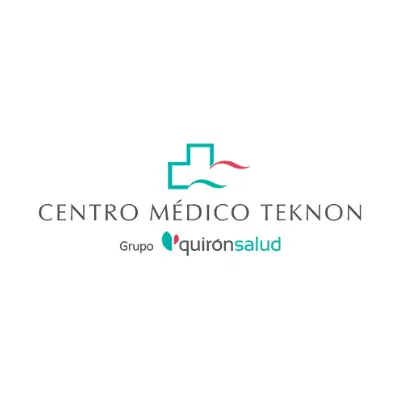The Role of Immunotherapy in Triple Negative Breast Cancer

What Is Triple Negative Breast Cancer?
Immunotherapy For Triple Negative Breast Cancer
Immunotherapy In Early-Stage TNBC
Early-Stage TNBC Treatment Strategy
Triple negative breast cancer (TNBC) is the most aggressive subtype of breast cancer, representing 12%–20% of all cases.
Historically, TNBC had limited treatment options other than chemotherapy. Luckily, advancements in science made it possible to treat triple negative breast cancer with immunotherapy.
Immunotherapy is a newer treatment that helps the immune system to fight cancer. Several clinical trials have demonstrated the efficiency of immunotherapeutic drugs combined with chemotherapy in improving the outcomes in patients with early and metastatic TNBC.
What Is Triple Negative Breast Cancer?
Triple negative breast cancer is an aggressive type of breast cancer that does not have the three receptors commonly found in breast cancer.
Patients with breast cancer of triple negative phenotype have cancer cells that lack the following receptors:
- Estrogen hormone receptor
- Progesterone hormone receptor
- Human epidermal growth factor (HER2) receptor
Without these receptors, the usual treatments for breast cancer, including hormone therapy and drugs targeting HER2 protein, do not work for TNBC patients.
Therefore, the prognosis for triple negative breast cancer is affected by how quickly it typically spreads (metastasizes) and how difficult it is to treat compared to other types.
There are different biological Subtypes of triple negative breast cancer, including:
- Basal-like (BL1 and BL2)
- Immunomodulatory
- Mesenchymal
- Mesenchymal Stem-like
- Luminal Androgen receptor
The triple negative breast cancer prognosis and treatment depend on the subtype of this cancer.
What Causes Triple Negative Breast Cancer?
The definitive causes of triple negative breast cancer are unclear and a focal aspect of ongoing studies. Researchers believe that one cause of breast cancer of triple-negative phenotype is a mutation in the BRCA1 gene, a tumor suppressor gene.
Usually, the BRCA1 gene can produce a protein that prevents cancer development. However, a BRCA1 gene mutation prevents this gene from functioning adequately, which makes the body more susceptible to cancer.
What Is Immunotherapy?
Immunotherapy is a newer cancer treatment that uses the patient’s own immune system to fight cancer cells.
When the immune system detects a foreign substance (antigen), it produces antibodies that can attach to this antigen and get rid of it.
A special type of immune cells (tumor-infiltrating lymphocytes) can also recognize and kill abnormal cancer cells. However, cancer cells have ways to evade the immune system, such as:
- They have genetic mutations that make it hard for immune cells to detect them
- They have proteins on their surface that can switch off the immune cells (cancer cells can disable the immune checkpoints)
- They can interfere with how the immune system responds to them
Immunotherapy was developed to prevent the cancer cells from deactivating the immune checkpoints.
As a result, the body's antitumor response increases, and the immune system can detect and eliminate cancer cells. Currently, there are several approved breast cancer immunotherapy treatments.
Immunotherapy For Triple Negative Breast Cancer
Historically, triple negative breast cancer has had no other treatment options except for chemotherapy.
However, researchers found that TNBC has increased tumor-infiltrating lymphocyte (TIL) levels in the tumor microenvironment. That offers some good news for triple-negative breast cancer patients.
TIL cells abundant around breast cancer of triple negative phenotype have a surface receptor called PDL-1. Advances in immunotherapy for breast cancer make it possible to target these PDL-1 receptors to identify and destroy TNBC cells.
Therefore, triple negative breast cancer is a good target for Immunotherapy because:
- TNBC has a high mutation rate compared to other Breast cancers
- Tumor-infiltrating lymphocytes (TIL) are more abundant in this type of breast cancer
- TNBC has a greater PDL-I expression compared to other types of breast cancer
Patients can receive immunotherapy with chemotherapy to reduce breast tumors or kill cancer cells that have spread. This approach helps improve triple negative breast cancer prognosis and long-term outcomes.
The Role Of Immunotherapy In Early-Stage Triple Negative Breast Cancer
Early-stage triple negative breast cancer has high levels of tumor-infiltrating lymphocytes, making it a suitable target for immunotherapy.
Two pivotal trials (Keynote-522 and IMPassion031) investigated the role of immunotherapy in improving the pCR and event-free survival of early triple negative breast cancer patients.
Pathological complete response (pCR) indicates that no sign of cancer is left in the breast tissue after treatment. Improving pCR in triple negative breast cancer means improving the long-term outcomes for patients.
Keynote-522 clinical trial
A study investigated whether adding Keynote-522 (Pembrolizumab) to chemotherapy increases the pCR in early-stage TNBC patients.
The trial included patients with stage 2 or stage 3 triple negative breast cancer. The patients received four cycles of either Pembrolizumab or placebo plus chemotherapy (Paclitaxel and Carboplatin) every three weeks.
The patients then received an additional four cycles of either Pembrolizumab or placebo plus another chemotherapy.
After definitive surgery, patients received adjuvant Pembrolizumab or placebo every three weeks for up to nine cycles.
The researchers concluded that Keynote-522 (Pembrolizumab) immunotherapy improved the pathologic complete response by 14% (from 51% to almost 65%).
Even without a pCR, combining Pembrolizumab immunotherapy with chemotherapy improved 3-year event-free triple negative breast cancer survival rate.
IMPassion031 clinical
Another study evaluated the efficacy and safety of Atezolizumab immunotherapy combined with chemotherapy as a neoadjuvant treatment for early-stage triple negative breast cancer.
Patients with stage 2 or stage 3 triple negative breast cancer received Atezolizumab combined with Nab-Paclitaxel, followed by Doxorubicin plus Cyclophosphamide.
The study showed that combining Atezolizumab immunotherapy with Nab-Naclitaxel and Anthracycline-based chemotherapy significantly improves pathological complete response rates.
Early Triple Negative Breast Cancer Treatment Strategy
The traditional treatment for early TNBC stage 1 and stage 2 is surgery followed by Chemotherapy with or without radiation therapy.
More modern early triple negative breast cancer treatments rely on chemotherapy with immunotherapy followed by surgery. After surgery, if the patient achieves pCR, then no further treatment is required. If patients do not achieve pCR, they receive additional adjuvant Capecitabine chemotherapy.
Advanced Breast Cancer Units actively participate in international breast cancer clinical trials to keep up with the latest breakthroughs in treatment for triple negative breast cancer.
The Role Of Immunotherapy In Metastatic Triple Negative Breast Cancer
Clinical trials investigated the efficacy of combining different immunotherapy drugs (Atezolizumab and Pembrolizumab) with chemotherapy in patients with triple negative breast cancer metastasis. The studies concluded that:
- Combining Atezolizumab immunotherapeutic drug with Nab-Paclitaxel chemotherapy yields a better outcome than Nab-Paclitaxel alone.
- However, combining Atezolizumab immunotherapeutic drug with only Paclitaxel does not give better results than Paclitaxel alone.
- Combining another immunotherapy called Pembrolizumab (Keytruda) with chemotherapy gives better results than chemotherapy alone in patients with metastatic TNBC.
Combining chemotherapy with immunotherapy is the current standard treatment for triple negative metastatic breast cancer with PDL-1 receptors.
Metastatic Triple Negative Breast Cancer Treatment Strategy
PDL-1 receptor is an immunotherapy biomarker in TNBC. That means the levels of PDL-1 receptors can indicate how well TNBC patients respond to immunotherapy.
Individualized therapeutic strategies can ensure each patient benefits from the appropriate cancer therapy.
Before starting Atezolizumab or Pembrolizumab immunotherapy for metastatic TNBC, advanced and highly specific PDL-1 assays are performed. These help to select the optimal patients suited for TNBC immunotherapy.
By considering each patient’s PDL-1 levels, tumor metabolism, place of metastasis, and tumor mutational burden (TMB), optimal clinical outcomes for patients with triple negative breast cancer metastasis become possible.

The Breast Cancer Unit at the Teknon Medical Center (Quirónsalud) in Barcelona, Spain, is one of the leading centers for breast cancer treatment in Spain and Europe. As part of the Teknon Oncology Institute, the unit offers comprehensive and personalized care with renowned specialists, state-of-the-art technology, and the most advanced breast cancer treatment approaches.
Sources:
Featured Blogs



